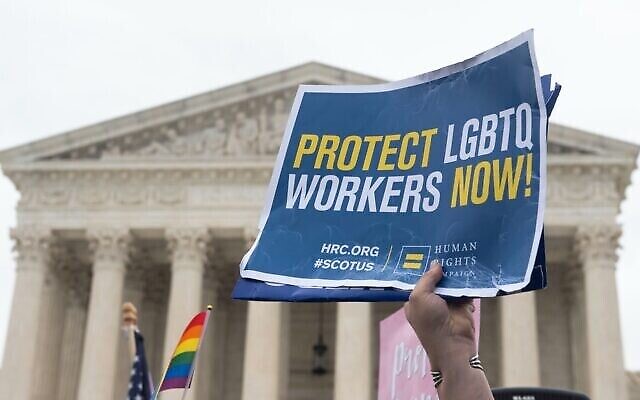2020 YIR: Supreme Court Ruling 30 Years Later to Protect LGBTQ
In mid-June this year, the U.S. Supreme Court ruled that the 1964 Civil Rights Act protects LGBTQ employees from discrimination based on sex.
June 22, 2020
In mid-June, the U.S. Supreme Court ruled that the 1964 Civil Rights Act protects gay, lesbian and transgender employees from discrimination based on sex. A retired Atlanta attorney who had lost her own case decades ago when she sued the Georgia attorney general for rescinding a job offer to her after learning that she was going to have a Jewish wedding ceremony with her lesbian partner expressed surprise.
“I was floored. It took me half a day to realize that the attorney general can’t fire someone because they are gay,” Robin Shahar told the AJT. “It is continuing to sink in. It is that monumental.”
In the 6-3 split decision, with Justice Neil Gorsuch writing the majority opinion, the court decided against three employers in three different cases. One of the cases involved a child welfare coordinator for Clayton County in Georgia, who was fired after he joined a gay recreational softball league. “It is impossible to discriminate against a person for being homosexual or transgender without discriminating … based on sex,” Gorsuch wrote.
Rabbi Josh Lesser agreed with Shahar. “This has a sweeping impact on fundamental basic rights,” said the rabbi of Congregation Bet Haverim, whose mission statement still reads that its purpose is to serve the LGBT community.
“Not all people will marry, but everyone will work. I’ve known so many people who have been closeted over the years because they were afraid to lose their jobs.”
To Shahar, the court’s decision was a “clear message on what is acceptable and what isn’t acceptable. Our jobs are where we spend most of our days. With this decision, people don’t have to choose between living honestly who they are and to have a job.”




comments